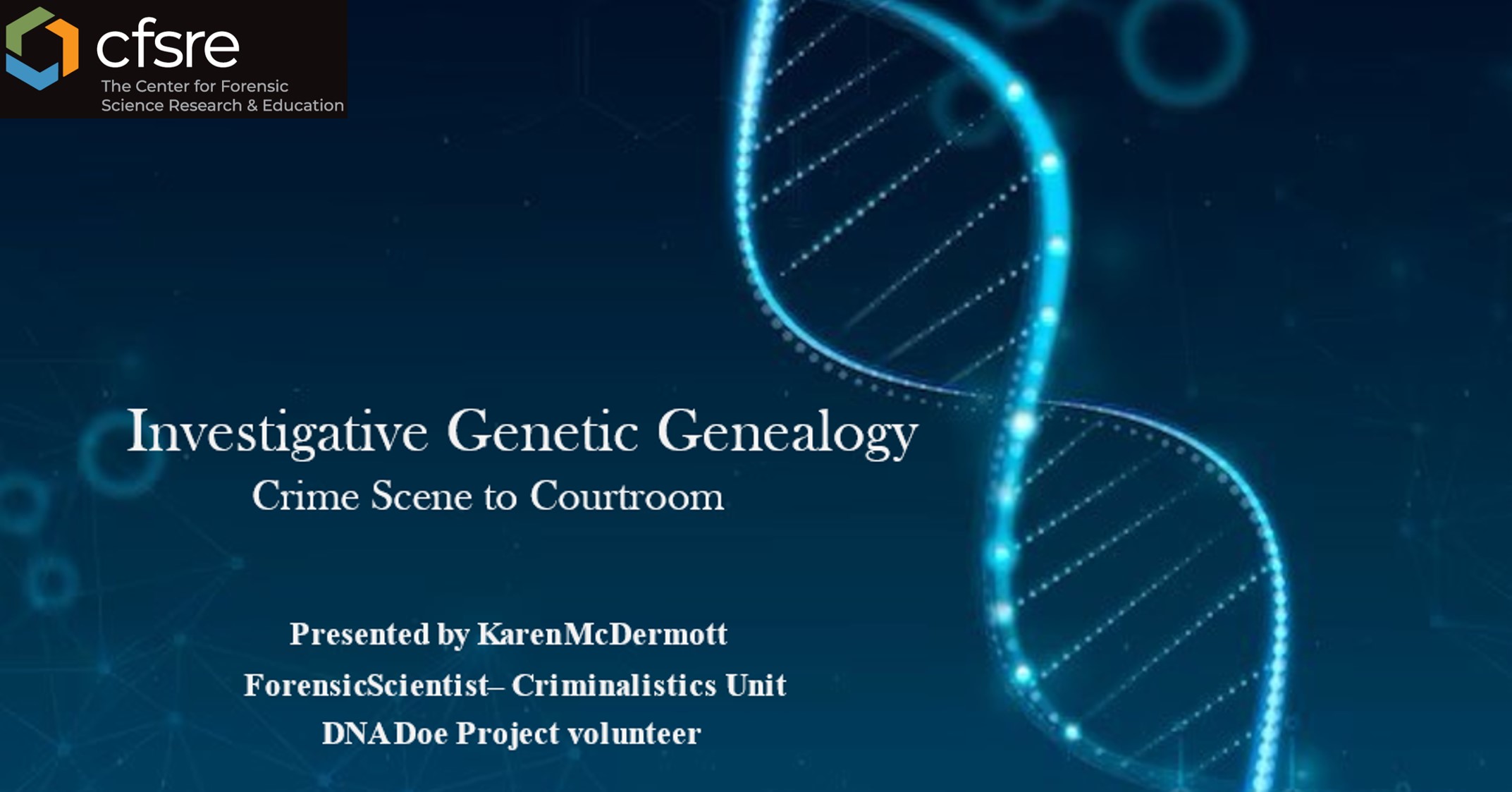 |
Login
When:This webinar originally occurred on Wednesday, December 20th, 2023 from 1pm - 2:30pm ET. All presentations and materials have been archived for you to access as On-Demand content.
In just a few short years, Investigative Genetic Genealogy (IGG) has revolutionized the field of cold case investigation. Cases that were considered “cold”, are now being relooked at. Families of missing persons may finally have answers to what happened to their loved ones. The process of IGG utilizes public direct-to consumer databases and the same genetic genealogy techniques that have historically been used to help adoptees identify their birth families or parents. IGG involves determining relationships between individuals based on their shared DNA. When combined with traditional genealogy research, potential identifications of unknown individuals can be made to help in unidentified human remains (UHR) cases or to develop leads in unsolved violent crimes. Historically, forensic unknowns are analyzed using STR markers, and if the suspect is unknown, the DNA profile can be uploaded into the FBI’s Combined DNA Index System (CODIS). The CODIS database allows for the comparison of forensic unknown samples between cases and also to DNA profiles of known offenders who have been required to provide samples of their DNA. A limitation of CODIS is that there are many instances when there is no link or “hit” developed between a questioned sample and the known offender database. IGG is able to tap into entirely new databases of individuals who have voluntarily taken DNA tests and have uploaded their profiles to either GEDmatch or FamilyTreeDNA. If they agree to opt in to law enforcement use, these individuals can become genetic witnesses and help to identify a missing person or a perpetrator of a violent crime. Investigative Genetic Genealogy is a powerful tool; however, there is a clear need for guidelines, regulations and oversight of IGG practices and practitioners. Few states have established laws governing the use of IGG in criminal cases. There are additional privacy issues related to direct-to-consumer users and their informed decisions to opt-in or opt-out of law enforcement use of their genetic information. This webinar will present an overview of the IGG process and how it differs from current forensic laboratory processes and CODIS. Legal considerations and current topics in the media surrounding the ethical use of IGG will also be discussed. Several case studies will be presented to demonstrate how IGG has been successfully utilized in cases of unidentified human remains.
Detailed Learning Objectives:
*Once you have completed all requirements for the webinar you will have access to your certificate for download. You can find your certificates in the Awards tab at the top of the page. The webinar's content has been reviewed by the ABFT and ABC, and determined to be acceptable for submission to the ABFT or ABC for continuing education credit! Click the LOGIN button below to register for the webinar: An Introduction to Investigative Genetic Genealogy - From Crime Scene to Courtroom |